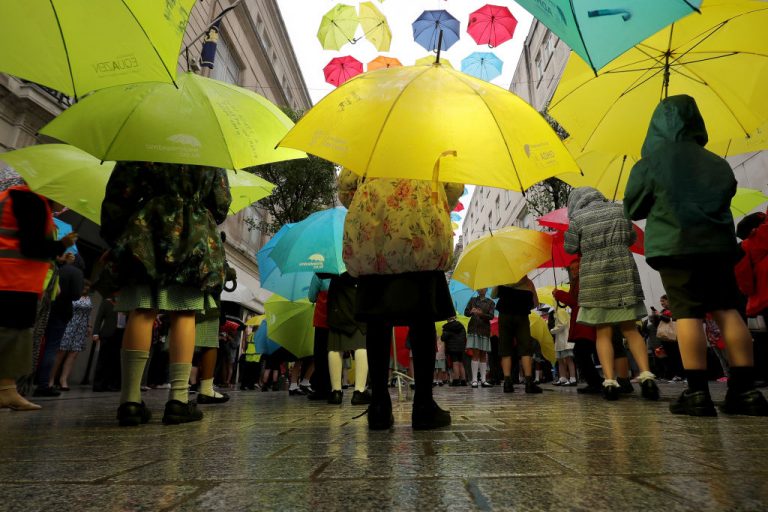Several medical practitioners in the United Kingdom have offered children who have learning disabilities the option to not be resuscitated if their heart stops during the Coronavirus Disease 2019 (COVID-19) pandemic, according to new reports.
Unfortunately, the spurious use of Do Not Attempt Cardiopulmonary Resuscitation (DNACPR) orders is not a novel emergence during the United Kingdom’s handling of the pandemic. In fact, The Telegraph reported as early as August of 2020 that several long term care homes for both the elderly and young had placed DNACPR orders on residents as a blanket policy.
The article cited an investigation by Queen’s Nursing Institute and paraphrased its findings as “one in 10 care home staff surveyed was ordered to change DNR plans without discussion with family members, nursing staff, or with the residents themselves.”
RELATED ARTICLES:
- UK Lab With Dubious History Suspended After Producing 43,000 False Negative PCR Tests
- UK Schools Deploy Facial Recognition Payments at Cafeterias
- 17 Struggling UK Independent Schools Bought by Communist China: Report
Additionally, the survey was paraphrased as revealing, “Staff also warned that some hospitals were operating a ‘no admissions’ policy for care home residents – even for non-Covid-19 conditions such as heart attacks – and some said they had struggled to make appointments with GPs for elderly people.”
Success
You are now signed up for our newsletter
Success
Check your email to complete sign up
Moreover, The Telegraph revealed in a June 9, 2021 article that DNACPR orders were placed on adults with mental illnesses and learning disabilities at the discretion of attending medics.
The June article found that even after the NHS issued a March of 2020 memorandum stating that learning disabilities should not be used as a pretext for issuing resuscitation orders “or be used to describe the underlying, or only, cause of death,” the practice nonetheless continued unabated.
However, what is new about the matter reported in a Dec. 26 article published by The Telegraph’s Investigations Team is that DNACPR orders are now being offered to children with learning disabilities, and sometimes without meeting a high standard of informed consent.
Citing “concerns about the pressure on the NHS,” The Telegraph states they spoke with parents of children with Down’s syndrome and autism whose general practitioners offered the anti-life saving measure “during routine appointments.”
One mother attended a “health check” with her 16-year-old son who suffers from Down’s syndrome and was asked by an assistant during a series of screening questions “if her child should be given a DNACPR.”
The mother described the experience as being asked “a disgusting question.”
She added, “The health assistant was following a form and she was very polite about it – suggesting she knew I wouldn’t want it to be ticked – but the question should not have appeared. It was very upsetting.”
Another mother with a 16-year-old son who suffers from severe congenital autism said the boy was directly offered a DNACPR, and “initially agreed because he did not understand the question.”
In a third case, Debbie Corns attended a health check with her 15-year-old son Oliver, who was diagnosed with an unnamed learning disability and congenital classic autism when he was two. During the check, the assistant directly offered the boy a DNACPR, to which he replied “yes.”
Corns was paraphrased as stating that for Oliver, “Having a learning disability means that their son needs support with everyday tasks including going out safely or managing money,” but that he is otherwise a normal teenager with a successful collection of gold medals from national swimming galas.
The mother intervened in her son’s response, ensuring the selection was corrected on the paperwork.
“I collapsed on the floor crying when I got home. I am a strong person, but I was devastated,” she said.
“The doctor devalued his life…During the pandemic, I worked from home and the question by the doctor confirmed to me that this was the right decision, because imagine he went to hospital after an accident by himself. We would have lost control of his healthcare and they might not have resuscitated him.”
A few days after the appointment, Corns and her husband sat down with Oliver and asked him, “If your heart stopped, would you like the doctors to try to save your life or would you like to die?”
They said Oliver “went upstairs for 20 minutes, but before leaving for school he looked at my husband and said, ‘Dad, save my life.’”
“He said it several times over the next few days. It broke our hearts. With the right language, support and time, he did understand. He had time to think about it. When the doctor asked, he couldn’t consent properly.”
The Corns’ asked that the identity of the Clinical Commissioning Group, which manages GPs, they belong to not be made public. However, The Telegraph viewed a letter written by the group to the family paraphrased as “apologising that the GP asked about whether her son should be resuscitated.”
The Investigations Team said that the Group said the cause of the situation was a “template” that “unintentionally [gave] GPs the impression that they must record the status as part of the annual health check.”

















